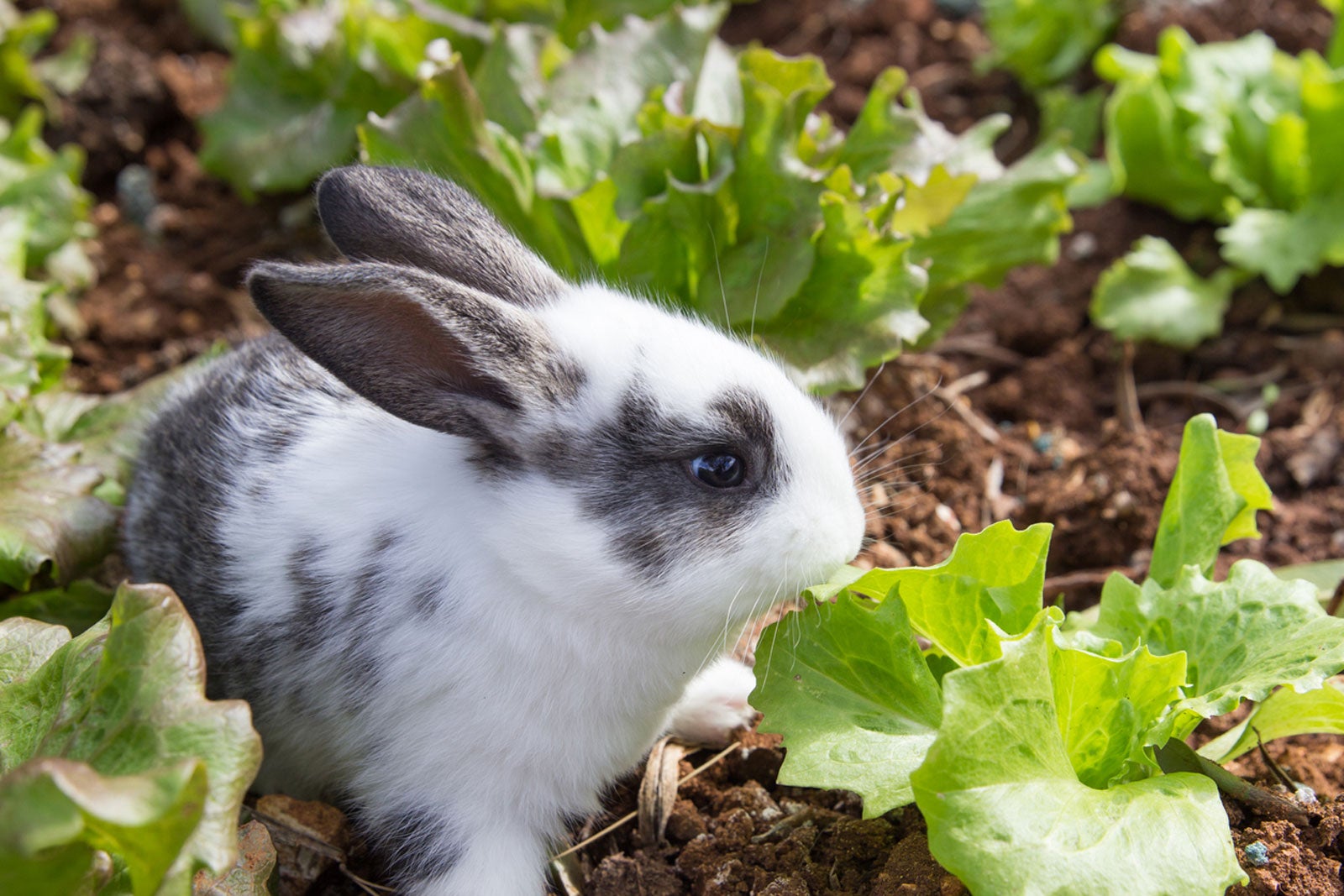
Rabbits are fun pets to have and, like any pet, require some knowledge, especially regarding plants that are dangerous for rabbits, especially if they’re allowed to roam around the yard. Plants toxic to rabbits may vary in their toxicity levels. Some plants harmful to rabbits have a collective effect and poisoning may not be immediately noticeable until too late. That’s why it is crucial to be aware of plants rabbits can’t eat and shouldn’t eat. After all, if something tastes good to them, they will eat it without regard to whether or not they are poisonous plants.
About Plants Rabbits Can’t Eat
Rabbits have a fairly sensitive digestive system. They require a high fiber, low sugar, and low-fat diet. This is why most ‘people food’ is a no-no; rabbits can’t tolerate foods like bread, rice, chips, or chocolate for instance. When Thumper is nosing around for a treat, refrain from sharing your chips or other snacks and opt for rabbit healthy options instead.
So just what plants are toxic to rabbits? Rabbits kept as pets usually have a fairly limited menu, but those allowed to forage or have free range in a home are in danger of ingesting plants that are dangerous to rabbits.
Rabbit Poisonous Plants
Those who allow their rabbits free-range should be aware that all houseplants are considered poisonous plants. There may be differences in how toxic a houseplant is, but to be on the safe side, assume that all houseplants are toxic to rabbits.
It is said that wild rabbits tend to avoid plants poisonous to them. The same cannot be said for rabbits kept as pets. Since they live off of a limited variety of foods, when allowed to roam and forage on their own, they will most likely be happy to try just about any “new”, green plant.
Their adventurous palates might turn out to be a very bad trait. There are numerous plants harmful to rabbits. It is your job to understand what plants these may be and remove them from the foraging area.
The following plants toxic to rabbits are considered dangerous to ingest. This is not a complete list but should be used as a guideline:
Sign up for the Gardening Know How newsletter today and receive a free copy of our e-book "How to Grow Delicious Tomatoes".
- Arum lily
- Buttercups
- Columbine
- Comfrey
- Delphinium
- Foxglove
- Hellebore
- Holly
- Ivy
- Larkspur
- Monkshood
- Nightshade
- Periwinkle
- Poppy
- Privet
- Yew
- Apple seeds
- Apricot trees (all parts except the fruit)
- Onions
- Tomato
- Rhubarb
- Potato greens
Anything that grows from a bulb should be considered a plant harmful to rabbits. A lot of native produce such as wild carrots, cucumbers, and garlic is toxic to rabbits. Also, steer rabbits away from nibbling on macadamia nuts or almond trees.
Other Plants Rabbits Can‘t Eat
- Fool’s parsley
- Ragwort
- Bryony
- Poison hemlock
- Aconite
- Celandine
- Corn cockle
- Cowslip
- Dock
- Henbane
- Hedge garlic
- Spurge
- Travelers’ Joy clematis
- Wood sorrel
Note: Unfortunately, poison hemlock is easily confused with cow parsnip, a particular favorite of rabbits. Cow parsnip is brighter green while hemlock has purplish-pink spots on the stems and shinier leaves. Hemlock is extremely toxic to rabbits and results in rapid, upsetting death.

Amy Grant has been gardening for 30 years and writing for 15. A professional chef and caterer, Amy's area of expertise is culinary gardening.
